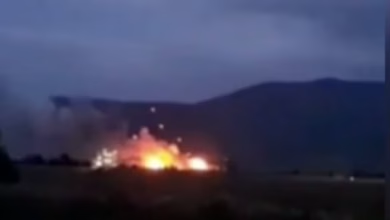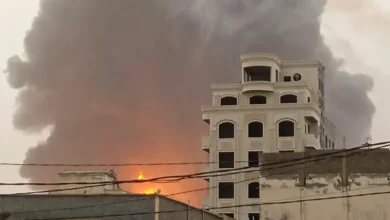US considering sending cluster munitions to aid Ukraine in fight against Russia

The US is leaning toward providing the controversial cluster munitions to Ukraine to aid it in the fight against Russia, with a decision likely to be made as soon as next month, US media reported citing officials.
The US is considering providing dual purpose improved conventional munitions, or DPICMs, to Ukraine, NBC reported citing three US officials.
Earlier on Friday, the US top military official Army Gen. Mark Milley, chairman of the Joint Chiefs of Staff, said the US has been mulling over providing Ukraine with cluster munitions: “We have been thinking about DPICM for a long time,” he said. “Yes, of course there’s a decision-making process ongoing.”
He added: “The Ukrainians have asked for it, other European countries have provided some of that, the Russians are using it.” He stressed that “there’s a decision-making process ongoing.”
Recently, high-ranking officials from the US administration and defense sector have been reaching out to legislative representatives at Capitol Hill and allied countries who have traditionally been against the deployment of cluster munitions. They’ve been advocating for the necessity of these weapons on the Ukrainian front lines and offering guarantees about their responsible use, the Washington Post reporting citing people familiar with the conversations.
Dan Rice, special adviser to the Commander-in-Chief of the Armed Forces of Ukraine had argued in February that “the main artillery defense, against a superior Russian artillery invasion, was always intended and planned to be DPICM,” according to state news agency Ukrinform.
Dual Purpose Improved Conventional Munition (DPICM) is a type of artillery munition designed for effectiveness against both personnel and armored targets. DPICM shells are essentially canisters that, when fired, eject a large number of smaller bomblets or submunitions over a wide area. The design’s intent is to saturate an area with explosions, making it highly effective against dispersed or dug-in enemy forces, and it can be devastating against armored columns or infantry formations. DPICM munitions can be delivered by various means, such as artillery shells, rockets, or missile systems, increasing their versatility on the battlefield.
Despite their effectiveness, DPICMs are controversial due to several reasons. The first is their potential to cause harm to civilians. Because DPICMs scatter submunitions over a broad area, they can inadvertently harm non-combatants if used near populated areas. Moreover, not all submunitions explode on impact. Those that fail to detonate become de facto landmines, posing a threat to civilians long after the conflict has ended. These unexploded ordnances can result in civilian casualties and injuries for years, even decades, after a conflict, and their removal is often risky and costly. This has led many to advocate for a ban on the use of such munitions, and they are indeed prohibited by the Convention on Cluster Munitions, which however, hasn’t been signed by all nations.










